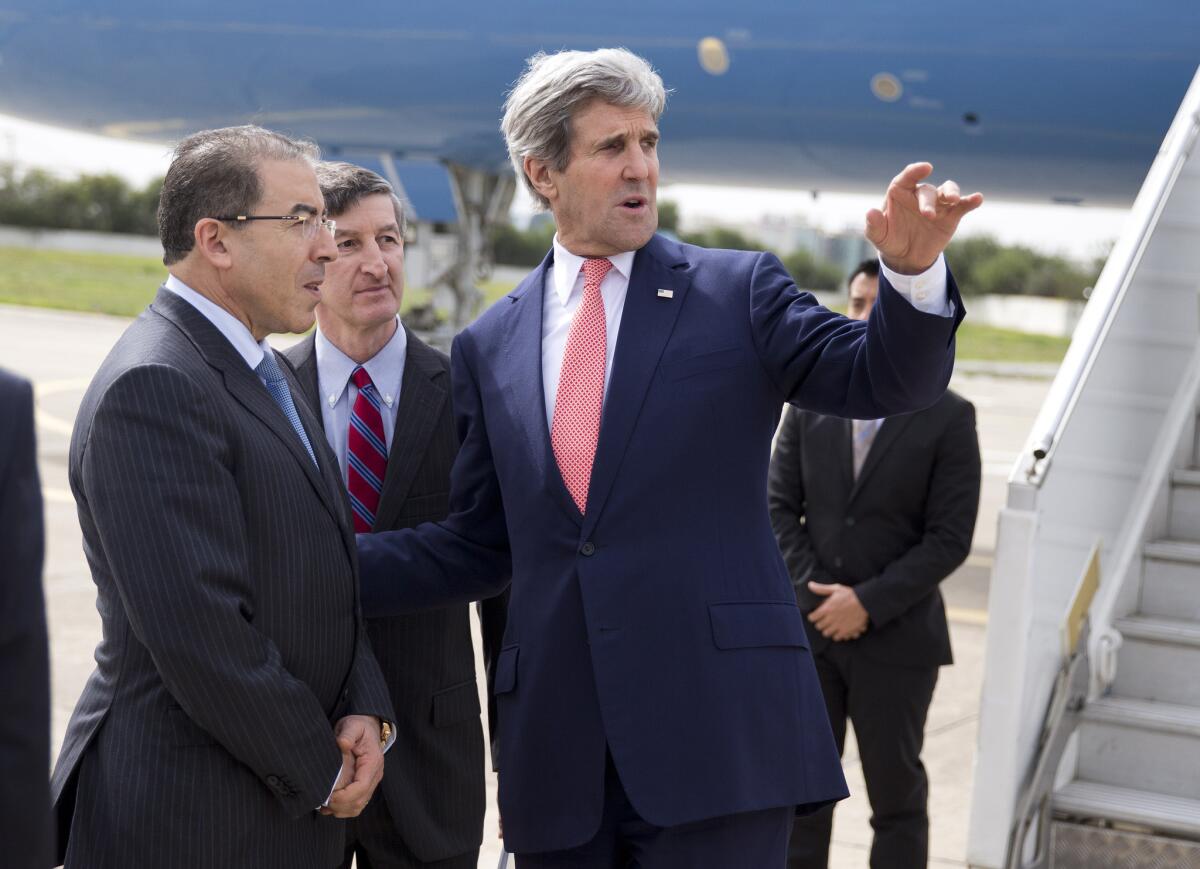Kerry visits Tunisia, encourages country’s steps toward democracy

ABU DHABI, United Arab Emirates -- Secretary of State John F. Kerry made a brief visit to Tunisia on Tuesday to show support for the strides the country has taken toward Western-style democracy.
Continuing a weeklong trip that began in East Asia, Kerry flew to Tunis, the capital, to discuss with senior officials “the progress made in Tunisia’s democratic transition, and continued U.S. support for the Tunisian government and people,” State Department spokeswoman Jen Psaki said in a statement.
Kerry told President Moncef Marzouki after arriving: “We are very impressed by the steps you have been taking, by the rational thoughtful approach to the transition.”
Kerry did not signal plans for new U.S. aid or other programs.
Though Tunisia’s secular and Islamist blocs continue a political struggle, the country last month adopted a constitution that has drawn wide praise in the West for its democratic and pluralistic goals. The document provides for minority rights and separation of powers, and assures a place for women in the power structure.
Tunisia is officially a Muslim nation, but it allows the practice of other faiths.
Adoption of the constitution has also been praised by European officials, who have worked with Tunisians to help move the country toward a Western-style system.
Even so, conservative Islamists are also active in the country, and it remains uncertain if Tunisia will continue on its current course. Elections are to be held in October.
Tunisia’s progress has been especially welcome for U.S. officials because of the struggles of other post-revolutionary Arab countries, such as Egypt.
The United States has committed $400 million in aid since the January 2011 revolution that overthrew autocratic leader Zine el Abidine ben Ali, officials said. That includes financial assistance, technical help and efforts to strengthen its civil society and democratic development.
Twitter: @richtpau
More to Read
Sign up for Essential California
The most important California stories and recommendations in your inbox every morning.
You may occasionally receive promotional content from the Los Angeles Times.











